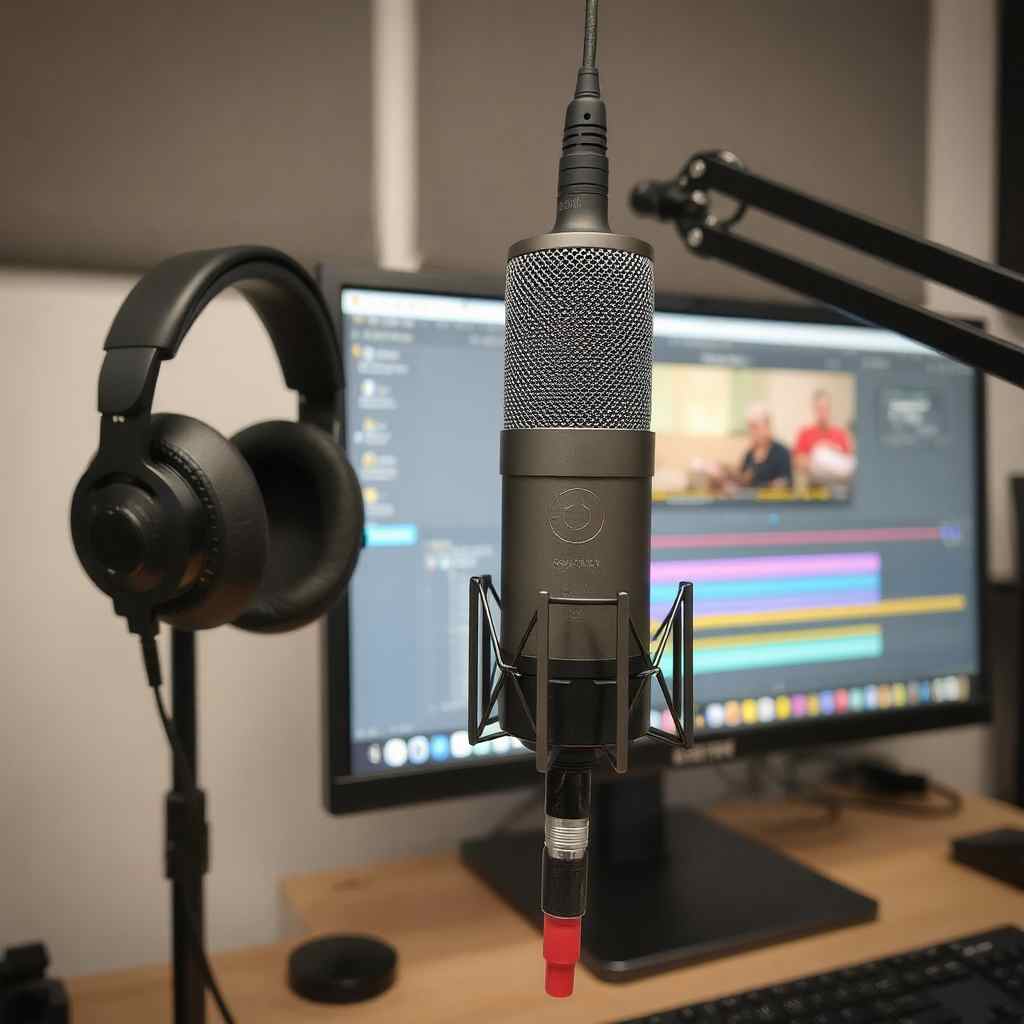Podcasting is more popular than ever, and with thousands of new shows launching each day, standing out can feel impossible. But don’t worry—it’s not. In this blog, we’ll explore 10 Proven Strategies to Stand Out in a Crowded Podcast Niche.
From storytelling to sound quality, we’ll cover everything you need to know to make your podcast unique, engaging, and discoverable. Whether you’re just starting or looking to grow, these tips will help you rise above the competition and build a loyal audience. Let’s dive in!

1. Why It’s Hard to Stand Out in Today’s Podcasting World
Podcasting has exploded in recent years, making it harder to grab attention. With thousands of shows in every niche, you need more than just good content to stand out. Listeners have countless options, so they only pick shows that offer something special or meet their exact needs. It’s easy to get lost in the crowd if your podcast doesn’t catch the eye—or the ear—of potential listeners quickly.
The challenge is that many podcasters are delivering similar content. To rise above the noise, you must differentiate your podcast by defining your focus clearly, branding effectively, and producing content that is unique and valuable. Simply having a podcast isn’t enough anymore; you need to do it in a way that people can’t ignore.
You Might Like To Read: How to Find a Profitable Podcast Niche: The Ultimate Guide to Making Money By Podcasting
2. Define and Refine Your Podcast Niche
Finding your niche is the first step to standing out in a crowded podcast world. A common mistake many podcasters make is going too broad with their topics. If you try to appeal to everyone, you’ll end up appealing to no one. The key is to narrow down your focus.
Ask yourself: What are you passionate about? What are you knowledgeable about that others might not be? More importantly, what specific audience can benefit most from your insights? For example, if your podcast covers business, instead of focusing on “business,” dig deeper. You could create a podcast about “marketing strategies for solo entrepreneurs,” which is much more targeted.
Once you’ve defined your niche, keep refining it based on what’s working. Look at your podcast’s performance and see which episodes resonate most with listeners. This allows you to continually adjust your content to better fit your audience’s needs, making your podcast more valuable over time.
You Might Like To Read: How to find the perfect podcast niche: 11 Small Niches revealed
3. Craft a Unique Podcast Brand Identity
Branding your podcast is more than just a logo or a name. It’s about creating an identity that sticks in people’s minds. Think of it this way: what do you want people to feel when they listen to your podcast? What image comes to mind when they hear your podcast name?
Start by choosing a memorable name that reflects your niche and audience. Keep it short, clear, and easy to remember. Next, design a logo that matches the tone of your show—whether that’s fun, professional, or somewhere in between. Consistency is key, so make sure your branding flows across all platforms, from social media to your podcast website.
Additionally, develop a distinct podcasting voice or personality. How you speak to your listeners sets the tone for your brand. Are you light-hearted, serious, or conversational? Your tone should match your content and audience. Building a strong, recognizable brand helps listeners remember and connect with you, even when there are other podcasts in your niche.
4. Create Unmatched Content to Make Your Podcast Truly Valuable
To stand out in a crowded podcast niche, your content needs to go beyond what’s already out there. It’s not enough to cover the same topics everyone else is talking about—you need to bring something fresh. This could be a unique perspective, insider knowledge, or expert guests that other podcasters in your niche don’t have.
The best way to create valuable content is by understanding your audience’s pain points and offering real solutions. Research what your competitors are doing, then ask yourself: how can I do this better? Maybe you provide more actionable advice, or you dive deeper into subjects your audience cares about but haven’t been covered extensively.
Another key to valuable content is consistency. Make sure each episode delivers quality information, keeps listeners engaged, and leaves them wanting more. When listeners know they can count on your podcast to offer something special, they’ll keep coming back for more.
You Might Like To Read: How to Make a Podcast Interesting: 10 Secret Tips No One Will Tell You!
5. Master the Art of Podcast Storytelling

Good storytelling is the secret sauce that keeps listeners hooked. When you tell a story, you take people on a journey. This makes your podcast more memorable and engaging. People don’t just want facts and information—they want to be entertained and moved.
To master storytelling, start by structuring your episodes with a clear beginning, middle, and end. Don’t just talk; lead your audience through a narrative. Whether you’re sharing your own experiences or telling someone else’s, create emotional moments that listeners can relate to. Use humor, suspense, or inspiration to draw them in.
Your tone matters too. Speak naturally, like you’re having a conversation with a friend. Make it personal, but also valuable, so people feel connected to both you and the topic. Remember, great storytelling is what separates a good podcast from a great one in a crowded niche.
6. Invest in High-Quality Audio and Production

Sound quality is a huge factor in podcasting. If your audio is poor, even the best content won’t keep listeners around. People are quick to switch off if the sound is hard to follow, has too much background noise, or just feels amateur.
To improve your sound quality, start with a good microphone. You don’t need to spend a fortune, but you should get one that captures your voice clearly. A quiet recording space helps too. Try using soundproofing or recording in a small room to reduce echoes.
Good production also involves editing. Clean up any mistakes or unnecessary pauses in your episodes. There are free tools like Audacity you can use, or you can hire a freelancer if you’re not comfortable editing yourself. Quality audio and smooth production make a big difference in setting your podcast apart in a crowded niche.
7. Optimize Your Podcast for Maximum Discoverability With the Help of SEO

SEO (Search Engine Optimization) is not just for websites. It helps people find your podcast too. You want your podcast to be easily discoverable when people search for related topics. This means using the right keywords, like “how to stand out in a crowded podcast niche,” in your podcast titles and descriptions.
Start by choosing an episode title that is both clear and searchable. Make it obvious what the episode is about, and include keywords that people might type into Google or podcast directories. Next, write a detailed episode description. This should explain the key points of the episode while naturally including keywords.
Transcripts are another way to boost discoverability. Posting a full transcript of your episode helps search engines understand your content, which can improve your ranking. The better you optimize your podcast for SEO, the more likely new listeners will find it.
Related Post: Does SEO matter for podcasts on Google? 7 Successive Tips
8. Engage Your Audience Beyond the Episodes by Building a Community

Podcasts are not just about broadcasting—they’re about building a community. You want your listeners to feel like they’re part of something bigger. The more engaged your audience is, the more likely they are to stick around and spread the word.
One way to build a community is by interacting with your listeners on social media. Start discussions, ask for feedback, or create polls to get their input. You can also offer extra content like Q&A sessions, behind-the-scenes updates, or bonus episodes. This gives listeners more reasons to stay connected with your podcast.
Encourage listeners to engage with each other too. You can create a group on Facebook or Discord where your audience can share their thoughts and ideas. By making your podcast more than just episodes, you turn listeners into loyal fans who feel personally invested in your content.
9. Collaborate and Network With Other Podcasters
One of the best ways to grow your podcast is by collaborating with other podcasters. When you work with others, you can tap into their audience and introduce your show to new listeners. This can help you stand out in a crowded podcast niche, as you’re reaching people who already enjoy the type of content you create.
Start by reaching out to podcasters who have a similar audience or focus. You can invite them to be a guest on your show, or you can appear as a guest on theirs. This kind of cross-promotion benefits both parties, and it doesn’t feel like forced advertising.
Another way to collaborate is by doing joint episodes or special events with another podcaster. This not only brings in new listeners but also adds something fresh to your content. Networking with fellow podcasters allows you to build relationships and share audiences, making it easier to grow in a competitive space.
You Might Like To Read: Ultimate Guide to Podcast Collaboration Strategies: Build Partnerships, Increase Listeners
10. Track and Analyze Data to Improve and Evolve Your Podcast
To keep improving your podcast, you need to pay attention to data. Tracking your podcast’s performance helps you understand what’s working and what’s not. This allows you to adjust and create content that your audience wants.
Start by monitoring your download numbers, listener retention, and episode performance. See which episodes get the most downloads or the longest listening times. These numbers tell you what topics your audience enjoys the most. Also, pay attention to listener feedback—through reviews, emails, or social media. If they’re asking for specific content or changes, it’s a sign you should listen.
You can also look at trends in your niche. See what popular podcasts are doing differently, and adapt those strategies for your show. By continuously analyzing and improving based on data, you can stay competitive and make your podcast more appealing to listeners.
You Might Like To Read: How to Use AI to Track Podcast Analytics: Boost Your Productivity to Next Level
Conclusion: Consistency & Creativity is the Key to Stand Out
Standing out in a crowded podcast niche isn’t easy, but it’s possible if you stay consistent and creative. You need to be clear about your niche, invest in quality production, and engage your audience beyond just episodes. It’s also important to keep evolving based on feedback and data, so your podcast keeps growing.
Remember, success won’t happen overnight. It takes time to build an audience and set yourself apart. But with persistence, strong content, and smart strategies, you can make your mark in the podcasting world. Stay committed to creating value for your listeners, and they’ll reward you by sticking around and spreading the word.
Image: AI